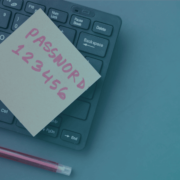Cyber-attacks come in many forms and continue to evolve, but there’s one tried and trusted unauthorized entry method that’s stood the test of time – cracking a user’s password. Despite this, too many organizations still rely on outdated advice... Read More
Blog
NHS cybersecurity experts talk passwords and Specops
NHS organizations have a challenge on their hands when it comes to cybersecurity. They have to defend sprawling, heterogeneous IT environments against relentless cyber‑threats, all while keeping their number one priority in mind: patient care. On a recent Specops... Read More
Specops Now Offered Through GuidePoint Security
This new collaboration offers GuidePoint Security customers access to password management and authentication solutions, which protect business data by blocking weak and compromised passwords and securing user authentication. Philadelphia, United States Specops is excited to announce a strategic reseller... Read More
The risk of default passwords: What they are & how to stay safe
Cyberattacks are evolving rapidly. As technology advances, so do the tools and techniques used by hackers, from AI-driven phishing schemes to highly targeted ransomware attacks. But despite this increasing sophistication, many successful breaches still rely on something shockingly simple:... Read More
Man-in-the-Middle (MITM) attack guide & defense tips
Imagine you’re overseeing your organization’s network security when suddenly you notice an unusual traffic pattern: packets flowing through a server that shouldn’t be there. What you’re witnessing could be a Man-in-the-Middle (MITM) attack in action, where an adversary stealthily... Read More
[Analysis] 16 billion passwords leaked – how much is recycled data?
Researchers recently uncovered a (seemingly) unprecedented aggregation of roughly 16 billion username–password pairs. However, there’s been some debate around how much of this is recycled data versus new. Similarly to the Rockyou2024 password list and ALIENTXTBASE data dump, our... Read More
Securing the service desk: Interview with an OffSec expert
Securing the service desk has become a priority for many organizations, especially after the spate of social engineering attacks in the UK linked to Scattered Spider. Attackers know the service desk can be an easy way to bypass MFA... Read More
HMRC phishing attack: How stolen credentials enabled tax fraud
His Majesty’s Revenue and Customs (HMRC) recently announced that it has been hit by a sophisticated phishing scam, which resulted in the theft of approximately £47 million ($63.76 million) from over 100,000 taxpayer accounts. The attack took place in... Read More
SIM-swap fraud: Scam prevention guide
SIM-swapping is quickly becoming a favorite form of attack for cybercriminals. According to the National Fraud Database, SIM-swap fraud jumped by over 1,000% in 2024. Hackers port a victim’s number onto a rogue SIM, so they can intercept SMS-based... Read More
Introducing Specops Service Desk for Cloud (Entra ID)
The service desk has become a prime target for sophisticated social‐engineering campaigns. It’s never been more important to arm frontline support teams with the tools they need to verify every caller from a potential liability into a confirmed identity.... Read More










